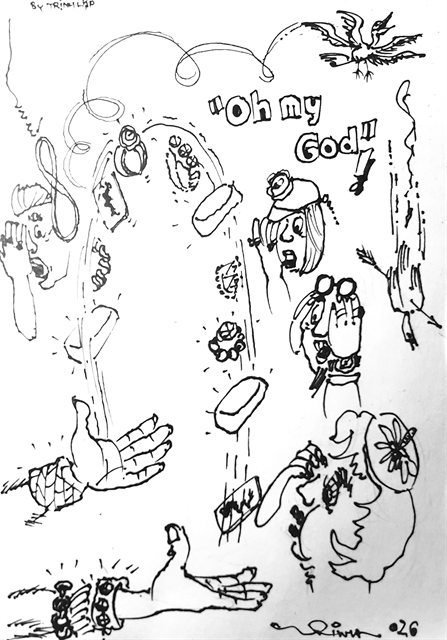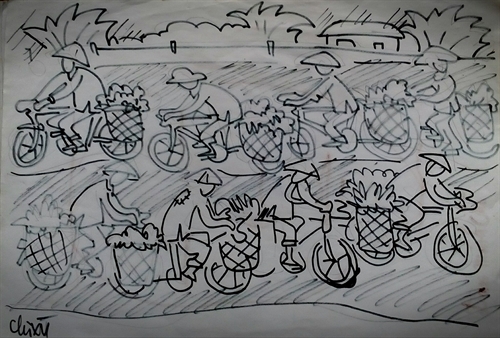 Talk Around Town
Talk Around Town

 |
The Ministry of Agriculture and Rural Development recently publicised a list of 69 stores that sell food that meets safety control requirements as its first step toward introducing safe farm products and reliable suppliers. The initiative aims to raise consumer confidence about food, and encourage safe food production and distribution.
Amid this confusion, many consumers have taken precautions such as dining out less or even growing vegetables at home. Some families buy food from mountainous areas at much higher prices and are willing to travel hundreds of kilometres to buy safe food directly from local farms.
Meanwhile, other consumers like me turn to home-grown veggies bought from relatives or friends in rural areas.
However, these measures are just temporary amid the growing threat to our food safety. This has become a national issue, as affirmed by Chairman of the Hà Nội Association of Supermarkets Vũ Vĩnh Phú at a dialogue last week.
Unsafe food has many health consequences. A shocking figure has been released: Việt Nam has about 200,000 new cancer cases every year, with 75,000 deaths, one of the highest rates in the world. Unsafe food was a leading carcinogenic factor, accounting for some 35 per cent of cases in the country.
It really is high time for the issue to be solved methodically.
Many other countries have independent agencies in charge of food safety that work more effectively, such as the Food and Drug Administration in the US and the European Food Safety Authority set up by the EU.
In Việt Nam many agencies, such as the Ministry of Health and the Ministry of Agriculture and Rural Development, are involved food safety management. But unsafe food is still available and no agency or individual takes responsibility for food safety violations.
The lack of strict sanctions and fines has also made it tough for local authorities to tighten control over food safety violations, worsening the situation.
Regular inspections and supervision are needed to ensure that products sold at certified food stores are always safe and clean.
In the age of technology, we need an official channel or website that provides information on food safety to management agencies, businesses and consumers.
Much of the public has become familiar with a special booth on Hoàng Quốc Việt Street in Cầu Giấy District, where people can have any kind of food products tested to see if they are safe enough. Such models should be expanded in many areas in the city and other localities to help people feel secure when using food products.
We still have to eat to survive and it is time for the Government to take tougher action to earn back people’s trust in food products. - VNS